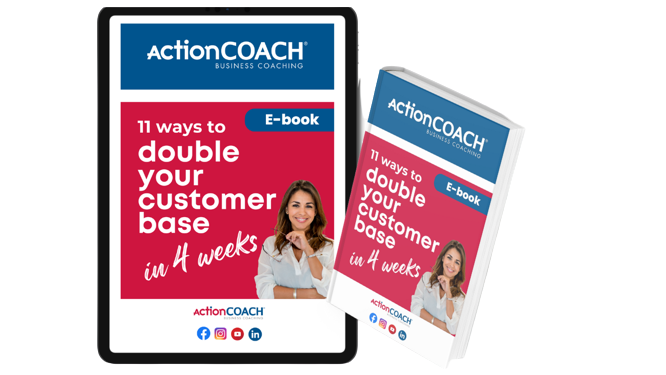Are your sales figures flatlining? Are your strategies for increasing your business profitability proving ineffective? Or are you simply looking to take your business to new heights? A great starting place is taking time to assess your customer relationships.
Use the table of contents to quickly jump between sections.
Among many businesses is the common misconception that new client acquisition is key to their performance. Of course, bringing in new customers is beneficial to your business growth. However, it's in your best interest to ensure you place focus on building relationships with your existing customers to drive customer retention. In this article, we look at why repeat business is important and how to use it to enhance your business profitability in 6 steps.
Why is it important to encourage repeat business?
The short answer is because it's essential for increasing profitability. Retaining customers is more cost-effective than acquiring new customers. It also provides a far better ROI. What's more, research (Bain & Co.) has shown that a mere 5% increase in retention rates can lead to a massive 75% increase in business profitability.
Repeat customers can transform your business income. Buyers who have a positive experience tend to come back for more. And often, they'll let their family, friends, colleagues and anyone who wants to listen on social media, know about their good find.
6 steps to repeat business
It's risky to assume that if you have an awesome product or service, customer retention is a given. While it may prove effective in a few cases, it is normally short-lived as customers begin to feel like they aren't special to you. You need to earn the loyalty of your customers, on an ongoing basis.
Make use of CRM software to build a customer database
A customer database is invaluable to small, medium and large businesses alike. Having customer data allows you to get to know your customers. Yes, you can also do this on a spreadsheet - but as your business grows (that's what we're here for, right?), it can get complex. There are many Customer Relationship Management programs (CRMs), of which many are free. They streamline and simplify the process for collecting and maintaining your customer data.
Your database should include the names and contact details of customers who have purchased from your business. It's beneficial to also include what their purchases were in your database. Doing so can help you identify their needs and desires.
Create offers that matter
You must determine the type of offer that will appeal most to your customers. An offer that is relevant and enticing will encourage the recipient to take action, or at the very least, keep it in mind.
Your CRM software can be exceptionally helpful when it comes to creating offers that actually matter to your customers. From your database, you can categorise your list of contacts. For example, you could generate a list of customers who haven't purchased from you in over 6 months. Next, you can send them a special "we miss you" deal or discount to entice them to reconnect with your business. A customer who knows their absence has been noticed will feel special and cared for.
Deliver an exceptional customer experience
Customer service is the bread and butter of a business. And being really good at it can help pave the way to running a profitable business. Customer service goes beyond the face to face or over the phone interactions. It should encompass the customer's entire journey. In today's world, with eCommerce at an all-time high in popularity, user experience is key.
Go above and beyond for your customers. Ensure that purchasing your product or service is easy for them. Delivering an exceptional customer experience means you're increasing your chances of repeat business.
Continue developing your products/services
If you offer a one-time product or service, generating repeat business is challenging. Being a one-trick pony in business can limit your profitability. This isn't to say that you need to expand your market. But it's important to understand that ongoing product and service development is essential. It's what helps you keep your existing customers engaged. Failure to continually work on improving and progressing your offering can also mean being left in your competitor's dust.
Introduce a loyalty program
As the name suggests, the purpose of this step is to create loyal customers. Research has shown that consumers favour the store with a loyalty program in place. Loyalty programs are diverse and you approach them in many ways. This makes it an easy incentive for many businesses to adopt. Modern technology also eliminates the need for pesky loyalty cards (because who needs more of those), through mobile apps. An example of a loyalty program could be rewarding your customers for their fifth buy with a 50% discount.
Consider the 80/20 rule
The 80/20 rule states that, often, 80% of the result comes from 20% of the effort. This principle is named after an economist from Italy. He observed that 20% of the Italian population owned 80% of the land in Italy. When applying this principle to business, consider that roughly 80% of your net profit is generated from 20% of your customer base. These are your most profitable customers.
Your CRM software can tell you which of your customers are the most profitable. If you have a limited number of vouchers to distribute, distribute them to these customers. Rewarding your VIP customers is an investment that is likely to pay off.
Maintaining customer relationships is essential for repeat business and increasing your business profitability. The steps in this article can help you turn one-time customers into lifetime customers. If you would like help implementing the 6 steps discussed in this article, book a free strategy session with us.

